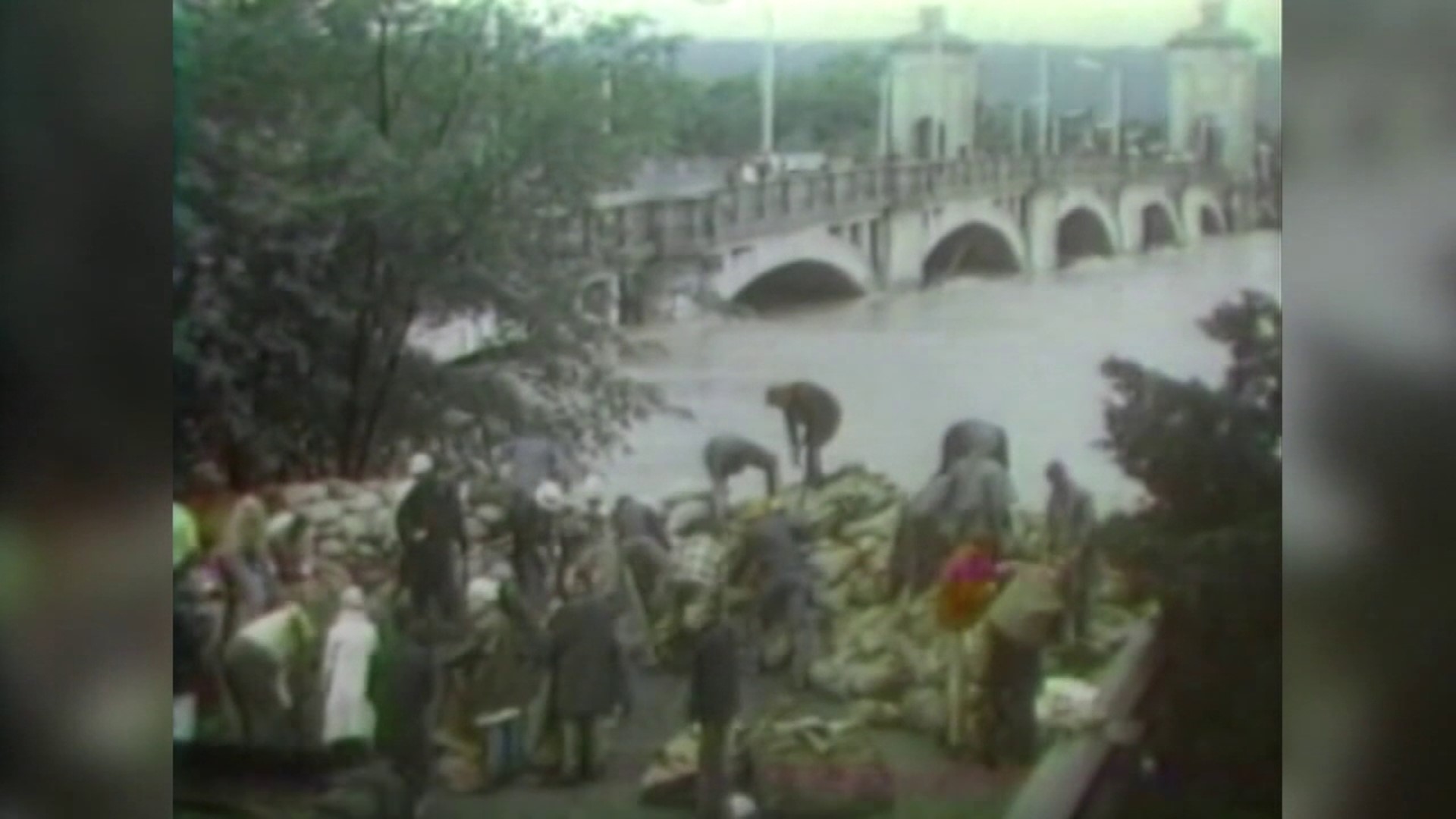PENNSYLVANIA, USA — It has been 50 years since Hurricane Agnes and 50 years since the conversation about extreme weather events shifted.
"My takeaway, personally, the legacy of Agnes, was to teach me to respect Mother Nature, particularly because I remember times when my family talked about preparing for things. I do not recall us sitting around the table and talking about preparing for Agnes at all," said Elizabeth Andrews, Virginia Coastal Policy Center, William & Mary Law School.
The Chesapeake Research Consortium was founded in 1972 with the desire to understand the environmental impacts and build resilience after Hurricane Agnes. The non-profit is hosting a number of events and webinars over the next month to commemorate the 50th anniversary of Hurricane Agnes. Everyone from meteorologists to insurance agents to emergency managers are getting together to ask questions like what have we learned from Agnes?
"People remember, people still talk about 'well with Agnes, the water level was here.' They've maintained their awareness over the years. They know if it hits this, they know to get their belongings out of the basement. If it's this level, they know there's going to be water on the first floor. There is a keen awareness which is great, but after 50 years, that is going to be lost more and more," said Andrew Dehoff, Susquehanna River Basin Commission.
Which is why we also have to ask questions like, where do we go from here? And if a storm like Agnes hits again this June, will it be the same result or better or worse? While the loss of life and property might not be as bad because of better inundation mapping, forecasting and warning, what impact will our changing climate have on future extreme events?
"That's an important lesson we need to learn because more and more we're predicted to have these strong and unexpected and perhaps unnamed storm events," Andrews said.
We will have much more on the 50th anniversary of Hurricane Agnes over the next month, learning from the past and preparing for the future.

